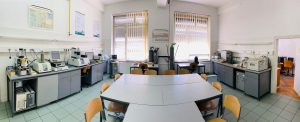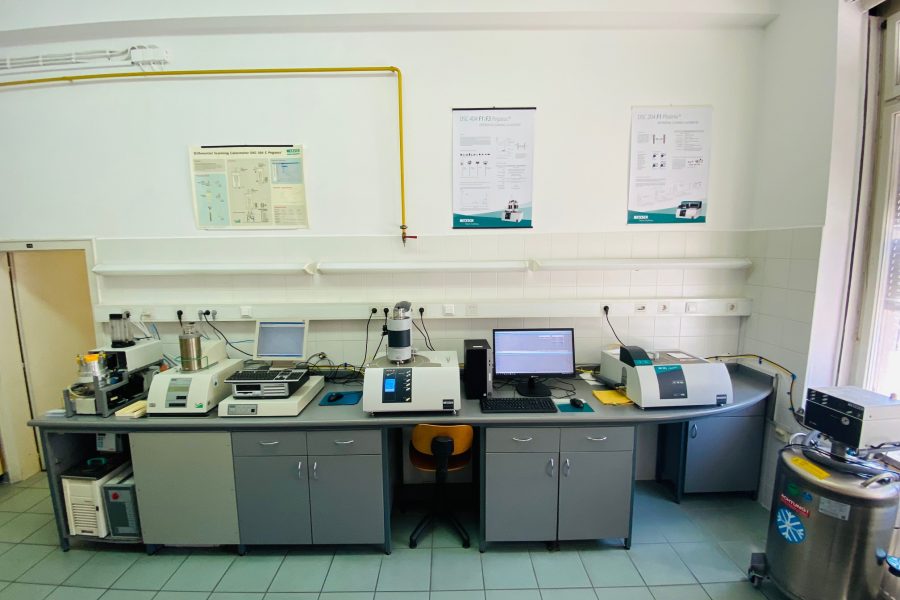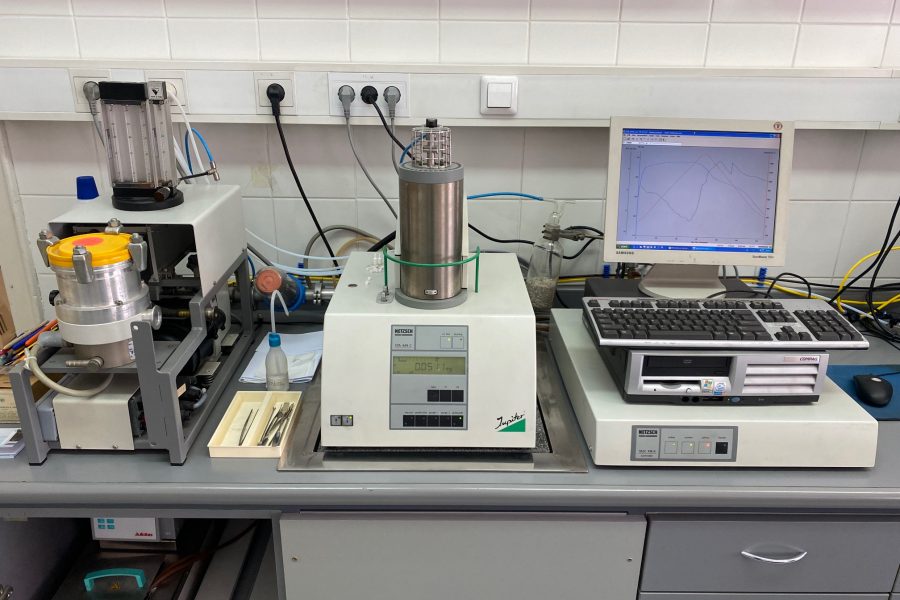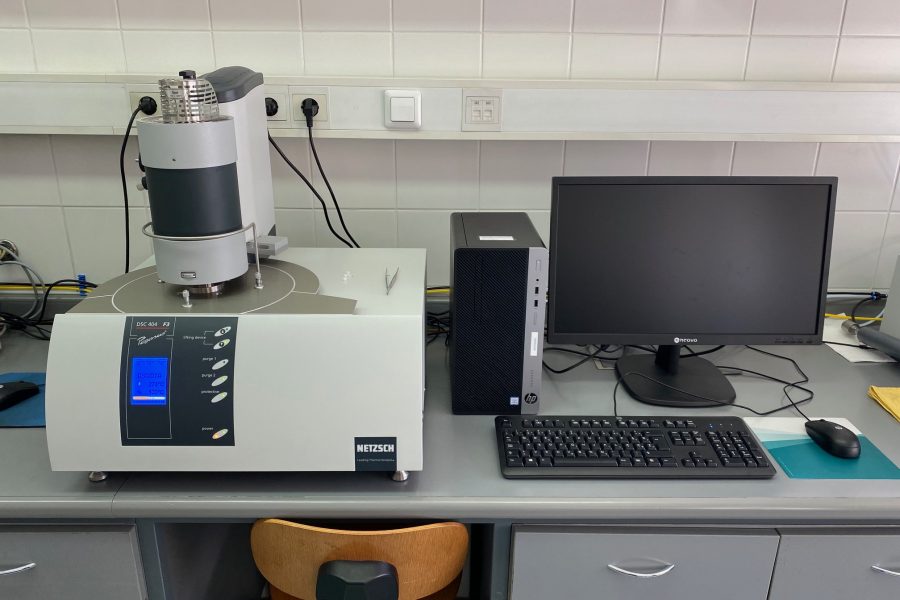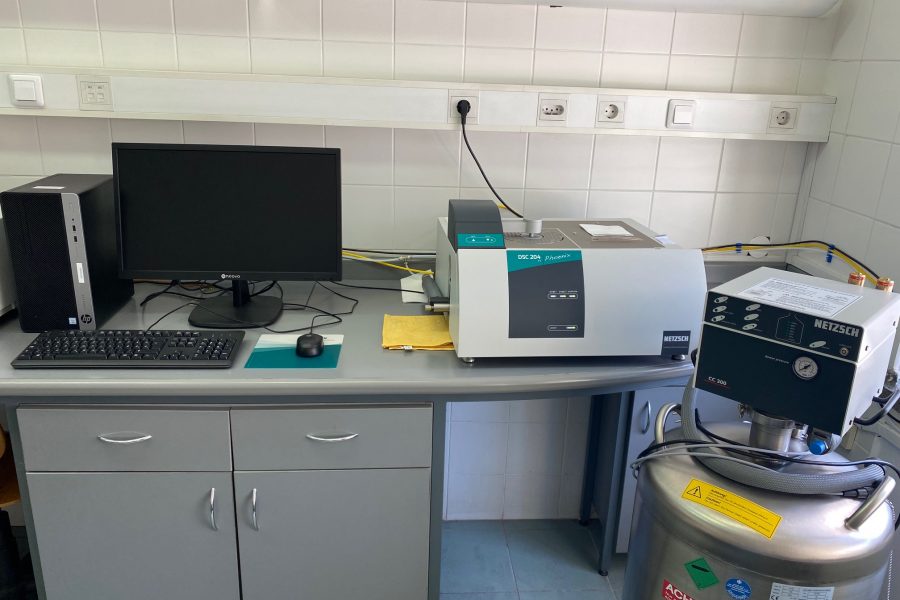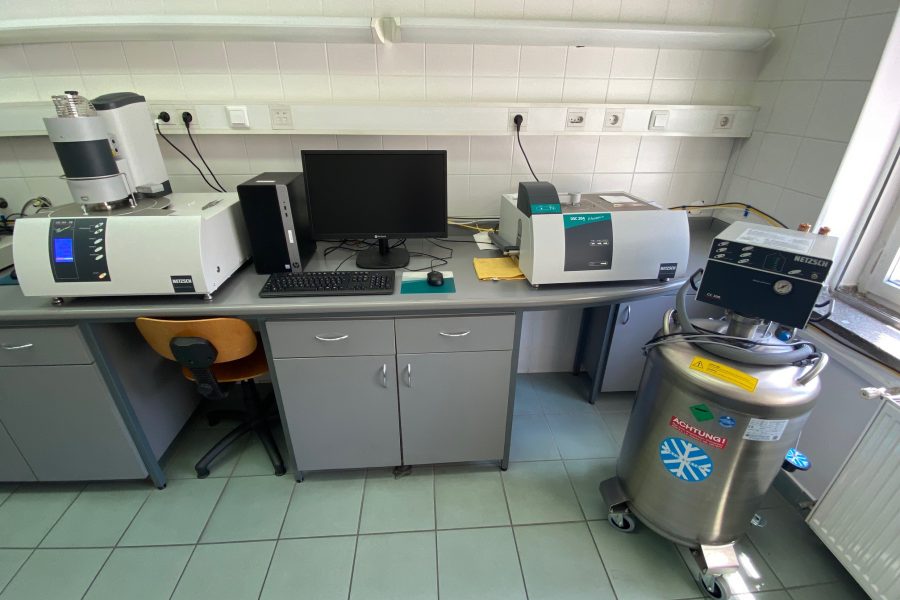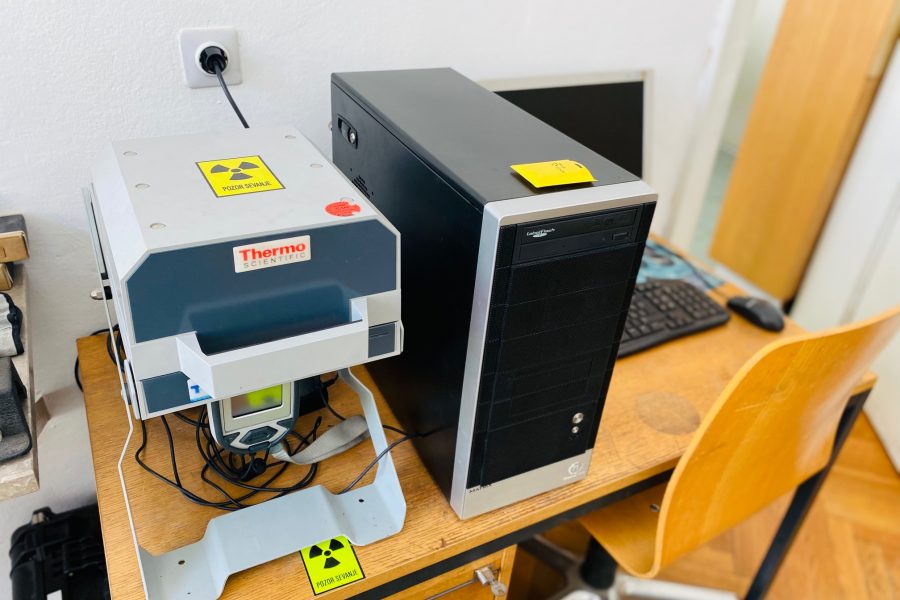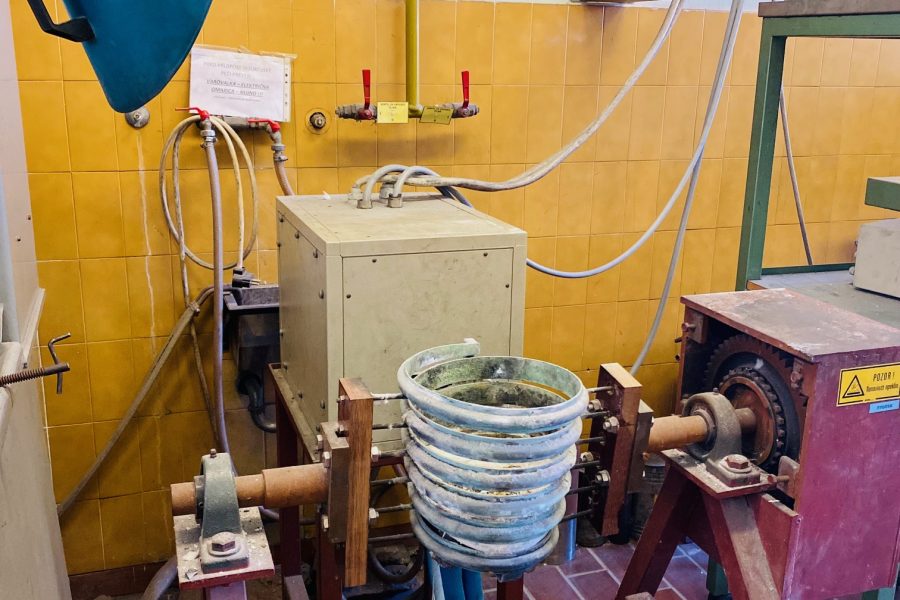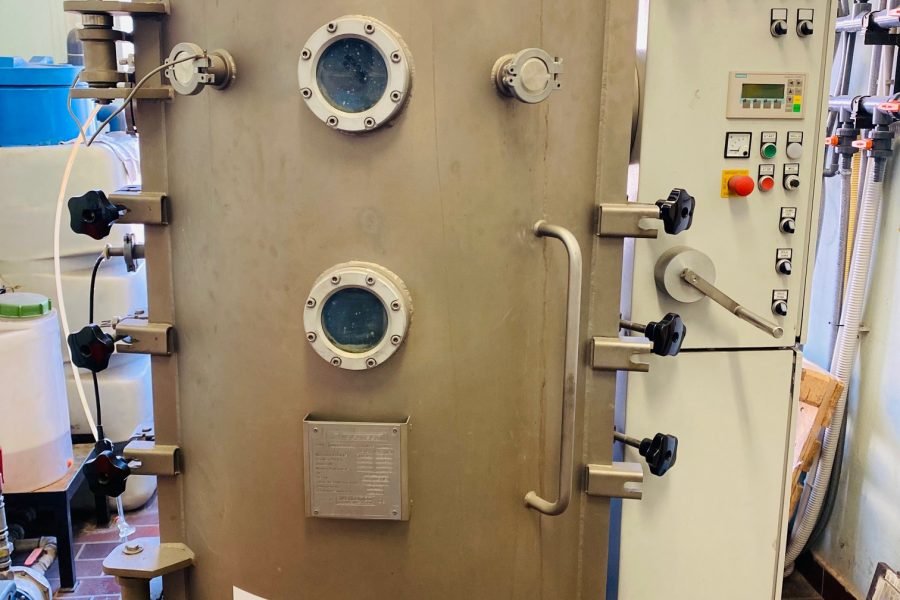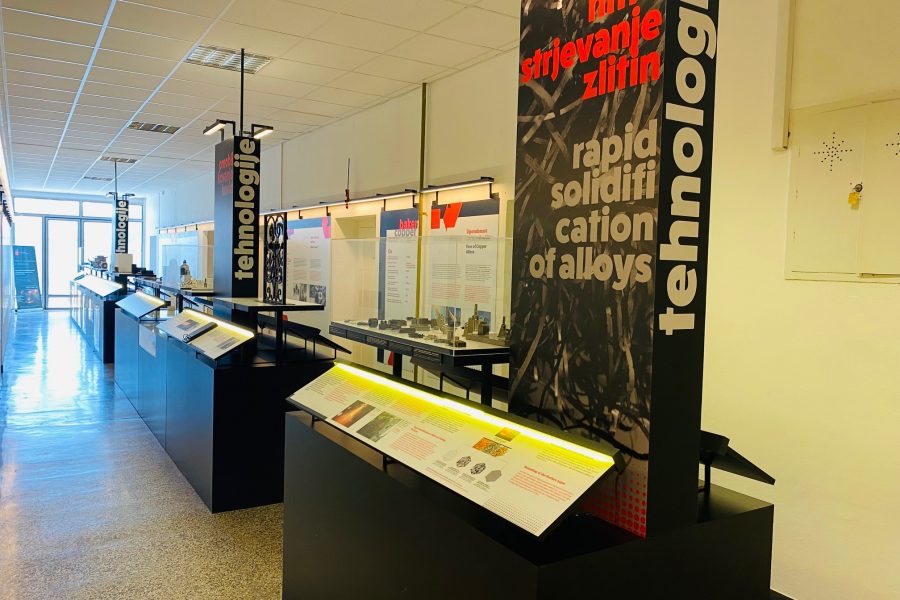Chair of Metallurgical Processing Techniques
HEAD OF CHAIR
Prof. Jožef Medved, DrSc
Tel: +386 1 2000 423
e-mail: jozef.medved@ntf.uni-lj.si
CHAIR ASSOCIATES
Assist. prof. Matjaž Knap, DrSc
Tel: +386 1 2000 419
e-mail: matjaz.knap@ntf.uni-lj.si
Assoc. prof. Maja Vončina, DrSc
Tel: +386 1 2000 418
e-mail: maja.voncina@ntf.uni-lj.si
Assist. prof. Tilen Balaško, DrSc
Tel: 01 2000 457
e-mail: tilen.balasko@ntf.uni-lj.si
Edvard Roglič, tech. assist.
Tel: +386 1 2000 448
The Chair of Metallurgical Processing Techniques is involved in educational activities for the university programme in Materials and Metallurgy and the higher professional programme in Metallurgical Technology and offers courses in the following areas: thermodynamics of materials, processing metallurgy of iron and non-iron metals, theory of metallurgical processes, metallurgic ceramics and hypothermic technologies and corrosion.
Our researchers are engaged in basic science as well as in industry technologies. We have established close cooperation with industry in the following areas: thermodynamic and kinetic modelling, modelling of metallurgical processes, construction of phase diagrams, development of non-metal inorganic materials, metallurgic slags, oxidation, thermal analyses and structure of metal materials, archaeometallurgy, the analysis and structure of metal materials, slags, metallurgic and other ceramics, manufacturing of metal and ceramic materials, the continuative and classical infusion of iron and iron alloys, steel and non-iron metals, the economy of production processes of metal and ceramics systems, hypothermic reactions in solid, liquid and gas states, hypothermic oxidation, the processes of agglomeration of non-metal and metal materials, recycling of metal and ceramic materials, the development of new or improved characteristics of metal and ceramic materials and their production technologies, microanalysis, nanotechnologies in metal and ceramics processing techniques, workplace and environment safety and high-temperature reactions in a vacuum.
Laboratory for Thermodynamics of Materials
In the laboratory, research is carried out in the field of thermodynamics for the needs of the educational process and scientific research work. The focus is on metallic and other inorganic non-metallic materials. In the laboratory we can perform: thermal analysis, electrochemical measurements, temperature measurement, oxidation and reduction at low and high temperatures, process simulations, C and S analysis, thermodynamic design of materials and processes (Thermo-Calc, Tapp).
The following equipment is located in the laboratory:
- STA device Netzsch STA 449C Jupiter®,
- DSC device Netzsch DSC 404 F3 Pegasus®,
- DSC device Netzsch DSC 204 F1 Phoenix®,
- DTA analyser: DTA 701,
- Dilatometer: DIL 801,
- C, S-analyser: CS – mat 600,
- electrical resistance chamber furnace (Tmax 1200 °C),
- electric high-temperature resistance furnace (Tmax 1600 °C),
- electric high-temperature resistance furnace (Tmax 1500 °C).
Melting laboratory
In our laboratory we carry out the following tests: thermal analyses, electrochemical measurements, melting and annealing at up to 2000 °C in different atmospheres, reduction and oxidation as well as sintering.
The following equipment is located in the laboratory:
- induction melting furnace (Tmax 1500 °C),
- Tammann furnace (Tmax 2000 °C),
- resistance chamber furnace (Tmax 1500 °C),
- resistance chamber furnace (Tmax 1300 °C).
Laboratory for Metallurgical and Mineralogical Process Engineering
In the Laboratory of Metallurgical and Mineralogical Process Engineering, measurements are carried out on metallic and non-metallic materials for educational process and scientific research. Various acrylic models of metallurgical reactors can be used to model phenomena such as melt flow in the reactor and chemical reactions such as decarburisation of the melt in the extraction of metallic materials. With a melting microscope, it is possible to observe the processes of softening, swelling, sintering, crystallisation, etc. of metallic and non-metallic materials up to a temperature of 1350 °C.
The following equipment is in the laboratory:
- melting microscope (Tmax 1350 °C),
- drying furnace (Tmax 230 °C),
- acrylic glass models,
- electric arc furnace,
- converter: AOD converter,
- casting mould with mould for casting billets.
